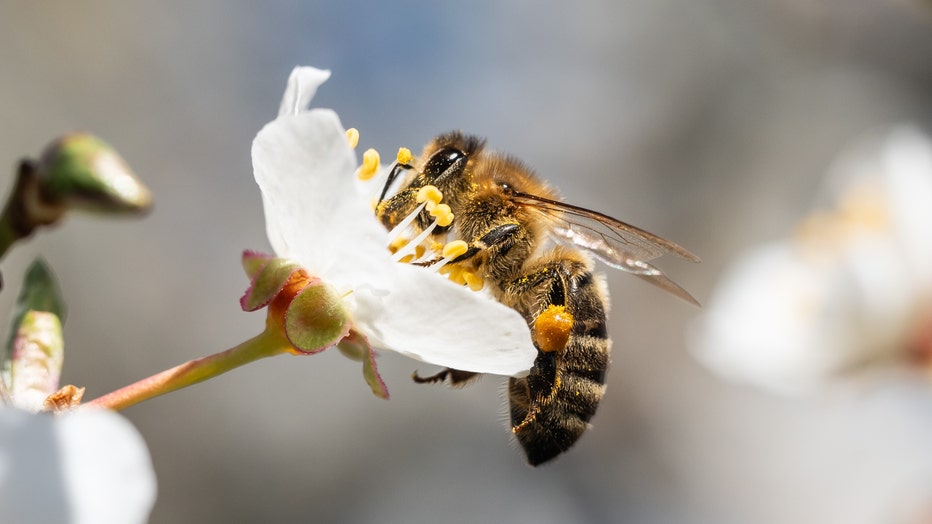Warmer autumns, winters pose threat to PNW honey bee survival, WSU study finds
A recent study from Washington State University (WSU) and the U.S. Department of Agriculture sheds light on the potential risks posed to honey bee populations by warmer autumns and winters, with significant implications for pollination services and agricultural productivity.
Published in Scientific Reports, the study delved into the impacts of climate change on honey bee colony dynamics, particularly focusing on the Pacific Northwest, but holds implications for hives across the U.S.
"This is a case where a small amount of warming, even in the near future, will make a big impact on honey bees," said lead author Kirti Rajagopalan, a WSU climate researcher. "It’s not like this is something that can be expected 80 years from now. It is a more immediate impact that needs to be planned for."
Keep reading to learn more about the study and its key findings.
Rising concerns for honey bee survival
Honey bees and other pollinators play a crucial role in agriculture, responsible for pollinating approximately 75% of global crops, including fruits, nuts, and vegetables. However, these vital insects are facing multiple challenges, including changing land use, habitat loss, pest pressures, pesticide exposure and climate change. While previous studies have highlighted correlations between monthly meteorological variables and honey bee colony losses, this study looked deeper into the effects of warmer autumn and winter temperatures on colony population dynamics and age structure.
Key findings of the study
The study used the VARROAPOP population dynamics model driven by future climate projections to simulate honey bee populations under different scenarios. Results indicated that warmer autumns and winters are expected to extend honey bee flight times, leading to changes in the age structure of the overwintering colony. Specifically, late-season flights alter the colony's age distribution, skewing it towards older bees, which in turn increases the risk of colony failure in the spring. This "spring dwindling" phenomenon occurs when warmer spring temperatures stimulate flight activity, causing mortality, especially in older foraging bees.

A bee clings to a blossom on a tree in the sunshine. (Silas Stein/picture alliance via Getty Images)
Implications for beekeepers and agriculture
For beekeepers and the agricultural industry, these findings signal potential challenges ahead. The transition from summer to winter bees is critical for colony survival, and disruptions in this process due to extended flight times could have detrimental effects. The study also evaluated an emerging management strategy to mitigate these impacts: overwintering colonies in temperature-controlled indoor facilities. The use of cold storage facilities could help maintain stable temperatures, reducing the physiological stress on bees and potentially improving overwintering survival rates.
Bridging gaps for bee conservation
The researchers emphasize the need to bridge critical gaps in understanding how to optimize winter management strategies in different locations and conditions. This includes identifying the most effective ways to support honey bee populations in the face of a changing climate. By studying the effects of climate change on honey bee dynamics, WSU researchers aim to provide insights that can aid in the conservation of these essential pollinators.
As concerns for pollinator health continue to grow, studies like this one play a vital role in guiding conservation efforts and sustainable agricultural practices. Through a deeper understanding of the impacts of climate change on honey bee populations, researchers and beekeepers alike can work towards ensuring the resilience and survival of these important insects.
MORE NEWS FROM FOX 13 SEATTLE
April Fools' Day 2024: Seattle gets creative with social media pranks
Everett enacts buffer zone to curb Port Gardner crime
West Coast whale population recovers 5 years after hundreds washed up ashore
Seattle couple buys home in Japan for $30k
To get the best local news, weather and sports in Seattle for free, sign up for the daily FOX 13 Seattle newsletter.

